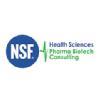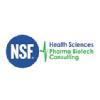Mathematics & Statistics - QP Module
United Kingdom, York
Course Overview :
There are many training courses on statistics and statistical analysis, but very few which focus specifically on the application of these techniques to pharmaceutical manufacture and control. This is one such course! Designed to meet the needs of the aspiring Qualified Person and other pharmaceutical professionals and taught by a combination of statisticians and pharmaceutical industry professionals, this highly participative 4 day course will teach you how to use statistical techniques to assess and monitor the reliability and accuracy of data you generate and the capability and reliability of the processes you work with. A statistics course like no other!
About This Course :
The pharmaceutical industry has historically underutilized statistical data analysis techniques that have been used extensively in many other industries to drive product and process improvement. It is still too often true to characterize the pharmaceutical industry as being data rich but information poor.
Recent developments in the GMP Guidelines that provide regulatory expectations around the globe are now seeking to drive pharmaceuticals to catch up with other industries by placing far greater emphasis on the trending of data; e.g. EU and US requirements for ongoing process verification as part of process validation, in Product Quality Reviews and ICH Q10. The ability to analyze and trend data is now an essential survival skill. This pharmaceutical training course will show you how to do this simply and effectively.
The provision of useful information is essential to the Qualified Person and other professionals.
This course is approved by the Royal Society of Chemistry as suitable for their members’ continuing professional development.
Key Learning Objectives :
To understand how to :
- Assess the reliability and accuracy of data and information arising from samples taken from a population using techniques such as:
- Basic statistics; mean, standard deviation, etc
- Histograms
- Box plots
- Confidence intervals
- Monitor and detect adverse trends before a process goes out of control using:
- Control charts; shewhart, mean and range, cusum and attribute charts
- Linear regression
- Assess the capability and reliability of a process
- Use, and know the limitations of, acceptance testing using ISO 2859 and ISO 3951
- Compare results using:
- T-tests
- Analysis of Variance (ANOVA)
- Interpret the interaction of process parameters via experimental design and multivariate analysis
- Maintain regulatory compliance
Registration link :
- NSF Online registration : Link
NSF contact :
- Phone : +44 (0) 1751 432 999
- email : pharmacourses@nsf.org
- visit : www.nsf.org/info/pharma-training
Note :
- All of our courses can be brought on-site, tailored to your key concerns and delivered at a time that suits you.
Course Outline:
Basic Statistical Quantities
- Terminology and definitions
- Measures and visual plots to describe populations and samples
- Deciding how much data to collect to enable appropriate decision making to occur
Statistical Techniques
- Data visualization tools:
- Histograms
- Box plots
- Confidence intervals
- Statistical Process Control (SPC) tools:
- Shewhart, cusum and attribute control charts
- Pareto charts
- Fishbone diagrams
- Process capability (Cp and CpK)
- ISO 2859 – specification for sampling procedures and tables, application of sampling by attributes
- ISO 3951 sampling procedures for inspection by variables
- Regression analysis
- Statistical testing:
- The t-test
- ANOVA
- Outlier testing
- Experimental design
- Multivariate analysis
Practical Application of Statistical Techniques
- Practical examples of the application of statistical techniques using teamwork sessions
- Experience of the application of statistical techniques in a QA system within a manufacturing environment
- The role of computers in the application of statistical techniques
- Six Sigma: What is it and what are its benefits?
We provide an optional post-course assessment.
Resume
Chris is an industrial statistician with almost 30 years’ experience of applying the principles of design for quality into products, and the processes that produce them, in many varied industries. He is currently the convenor and project leader of an ISO working group writing international standards on Six Sigma.
David is a senior lecturer in the Department of Statistics and Modelling Science, University of Strathclyde who has carried out statistical consultancy work for the NHS, pharmaceutical companies and Health Protection Scotland.
Peter is an analytical chemist with over 40 years’ industry experience of applying statistical techniques to pharmaceutical manufacturing, testing and quality management.



